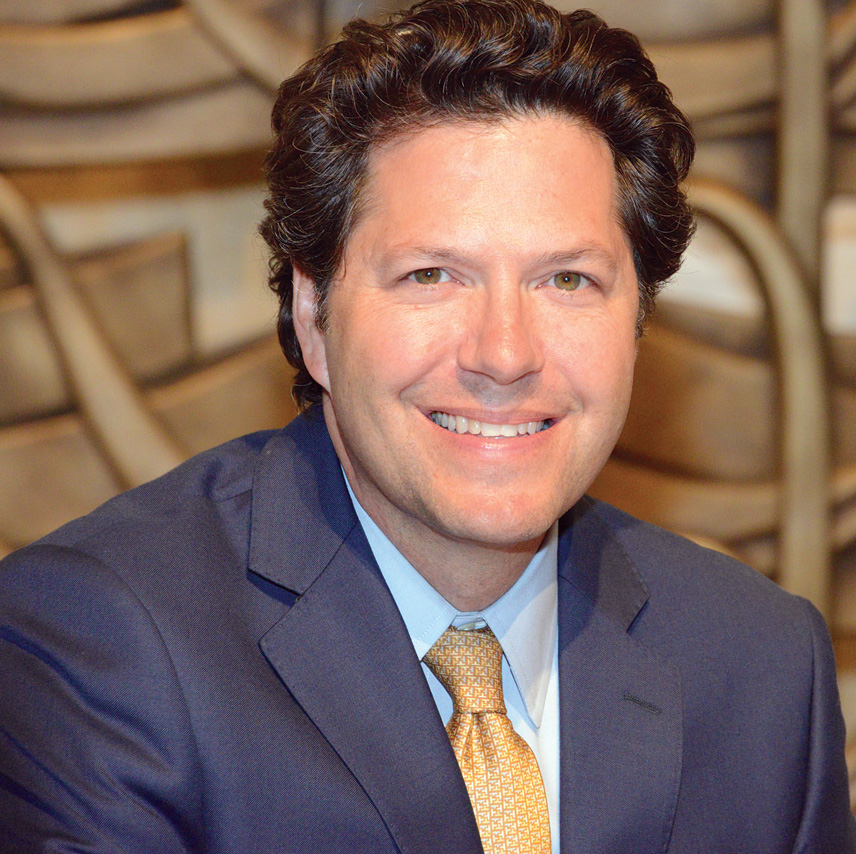 Screenshot from YouTube
Screenshot from YouTube I wish we were gathering for a different occasion, under different circumstances. We all do.
But often we just don’t get to choose. Moments like this are chosen for us. What happened yesterday has happened before. In Fez and Tripoli. In Krakow and Kishinev. Innocents slaughtered: young and old alike, sitting quietly in their homes or gathered outside to enjoy music.
What happened yesterday—what’s happening now—has happened before.
Over three millennia, we’ve survived pogrom after pogrom, massacre after massacre. We survived the Shoah.The trauma, the pain, the agony we carry—it’s unbearable. And yet, somehow, we bear it.
This time it played out on video, on social media. We had to witness the slaughter. And we are so deeply divided. Yes, these divisions have been there before, perhaps always, but it’s especially bad now. Here and in Israel too we are already pointing fingers at one another, already assigning blame.
But here’s a truth I hope we can all acknowledge, a truth we can all embrace: the pogrom is never our fault. Antisemitism is never our fault. We are not responsible for the hatred of others, for their despicable behavior, for their murderous rage.
What we are responsible for is how we respond.
In the days to come, we will learn more about how this happened and what we might be able to do differently in the future to prevent it from ever happening again. We will support Medinat Yisrael and Am Yisrael with all of our hearts, with all of our might, with everything we’ve got. We will do what must be done, even the very hard things.
But tonight is about a community coming together for comfort, for strength, for healing. And it’s a call to action. How will we respond? With generosity? With resolve? With seichel, with wisdom? With tenderness for each other? With compassion?
In 1936, a man named Mordechai Gebertig, responded to rising antisemitism and violence against Jews in Poland by composing a song, one that is still widely known: Es Brent.
The title means “It burns.”
S’brent, briderlech, s’brent!
It’s burning, brothers and sisters! It’s burning!
Our poor village burns!
Rage and ravage, smash and shatter;
Stronger now the wild flames grow—All around now it’s burning!
And you stand there looking on
With futile, folded arms,
S’brent, briderlech, s’brent!
It’s burning, sisters and brothers! Our town is burning! And salvation hangs on you alone.
So if our town is dear to you,
Grab a bucket and douse the fire!
I don’t know how to douse the fires of hatred.
I don’t know how to solve the problems that led to yesterday’s pogrom: a terrorist regime on Israel’s border that teaches hate, that builds tunnels whose sole purpose is to destroy, that lionizes those who would kill innocents, that prizes—perhaps above all else—the opportunity to kidnap one of our children, or even a grandmother.
I don’t know how to unify a nation deeply divided internally or even our own Jewish community right here. I don’t know how to fix intelligence and military failures that will be investigated and, we hope, never repeated.
But I know one thing–I’m not going to stand and watch it burn.
I’m going to grab a bucket, a pen, a keyboard—I’ll write letters and emails and text messages to those I love there, the ones closest to the fire, and I’ll tell them that they matter to me, that their pain breaks my heart.
And then I’ll write a song or a poem or a screed. And I’ll book my next trip and I’ll plan my next mission. And here, here in this community, even when we disagree about what’s best for our people, for our schools and our synagogues, and for our homeland, I’ll keep loving you and inviting you to come here to this place to be with me. And I’ll come to you—to your synagogues and schools and churches and mosques and temples and your homes—if you’ll have me.
I won’t stand and watch it burn. I’ll do everything I can to put out the flames.
Now—s’brent briderlech—my brothers and sisters, it’s burning. But in time, if the past is any indication, it will heal. It will scar over. The trauma will subside but never fully disappear and that makes me sad but I’m powerless to change it.
So tonight we douse the flames a bit and apply a bandage, a salve, through our prayers and through our support. Through the friends who have gathered together to be with our Jewish community tonight. Through our leaders who are here in great numbers—and we thank you.
Through our kindness and our strength. Through our resolve. Through our unity. And through our hope.
Rabbi Yoshi Zweiback is the Senior Rabbi of Stephen Wise Temple in Los Angeles, California.























 More news and opinions than at a Shabbat dinner, right in your inbox.
More news and opinions than at a Shabbat dinner, right in your inbox.